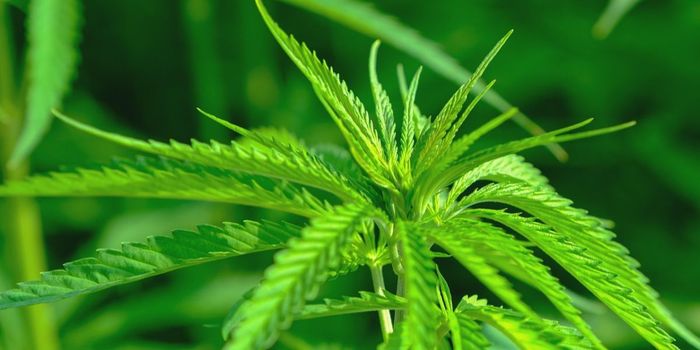New Science Finds No Harmful Effects of Cannabis on Brain
The old stereotype of the "dumb pothead" (think "Dude, Where's My Car?") may have just been debunked by the latest scientific findings from multiple research groups independently testing the effects of cannabis exposure on the brain and intelligence scores. Longitudinal studies, cross-sectional studies (for a description of each type of test, click here), and at least 1 meta-analyses have found very little, if any, impact of smoking on IQ scores or brain anatomy. This story broke yesterday in a piece on Truthout written by Paul Armentano.
Photo source: Pixabay.com
Mr. Armentano cites several studies which he uses to present his case that weed does not affect intelligence. For example, researchers at the University of California Los Angelos (UCLA), led by Dr. Laura A. Baker, used two longitudinal studies comparing adolescent twins. One of the twins smoked while the other did not. Researchers studied these twins over time and found no differences between the two in terms of IQ. However, IQ (Intelligent Quotient) is a dated form of measuring intelligence (and could be subject to socio-economic biases). What else has been done to support the claim that marijuana is not bad for your brain?
Brain scans were performed on 781 young adults, ages 14-22, by researchers from the University of Pennsylvania led by Dr. J. Cobb Scott. His group found that, within the 147 cannabis users within the cohort, (109 occasional [≤1-2 times per week] and 38 frequent [≥3 times per week] users), there were no significant differences by cannabis group in global or regional brain volumes, cortical thickness, or gray matter density.
Another brain scan study was just published in Psychiatry Research: Neuroimaging by Dr. Rachel Thayer and colleagues at the University of Colorado - Boulder presenting their results of a pilot study comparing MRI scans in 28 cannabis users over the age of 60 versus matched controls. Cannabis users in the study, on average, had used marijuana weekly for 24 years. They concluded that "long-term cannabis exposure does not have a widespread impact on overall cortical volumes while controlling for age, despite over two decades of regular cannabis use on average".
The results from this pilot study go against the literature suggesting that marijuana use, at least in adolescents on into adulthood, does produce neurological changes. This is where the results from the meta-analyses can help shed light on all of this data. Dr. Scott and colleagues from UPenn also performed a systematic review of 69 studies stemming from 1972 and found that continued cannabis was associated with small reductions in cognitive functioning, however, these deficits resolved after only 72 hours of abstinence.
Photo source: Pixabay.com
Another study published by Dr. Claire Mokrysz and colleagues of the University College London investigated associations between adolescent cannabis use and IQ and educational attainment in a sample of 2235 teenagers. They found that adolescent cannabis use is not associated with IQ or educational performance once an adjustment was made for potential confounds, in particular, adolescent cigarette use. They concluded that "modest cannabis use in teenagers may have less [of a] cognitive impact than epidemiological surveys of older cohorts have previously suggested".
While these studies seem promising to pro-legislation groups, we have to remember that, in the world of research, a handful of studies, even meta-analyses, does not prove any facts either way. Instead, they help promote dialogue among all those involved. This includes researchers, lawmakers, patients, marijuana advocates, parents, teachers, etc. This is a much-needed discussion especially in the midst of changing marijuana laws.
Sources: learning.closer.ac.uk, en.wikipedia.org/wiki/Meta-analysis, truthout.org, Proceedings of the National Academy of Sciences of The United States, TheConversation.com, Neuropsychopharmacology, Psychiatry Research: Neuroimaging, Current Pharmaceutical Design, JAMA










